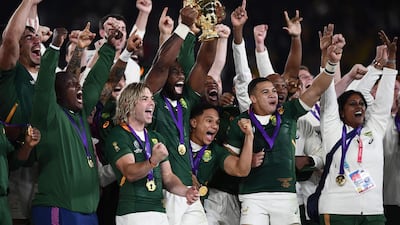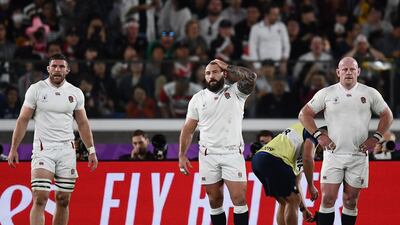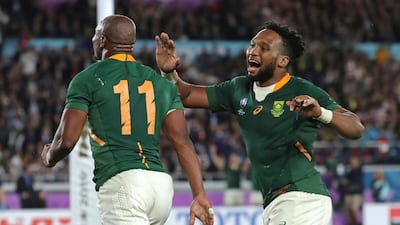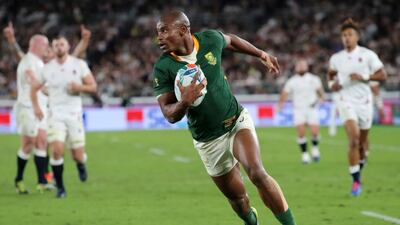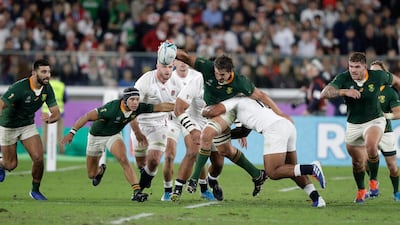South Africa were already supposed to have provided rugby's most indelible image 24 years ago.
Back then, President Nelson Mandela handed over the Webb Ellis Cup while wearing a replica of the green number six shirt of their white Afrikaner captain, Francois Pienaar.
Does this better it? Siya Kolisi, the first black captain of the Springboks, accepting the same trophy while being flanked by teammates "from different backgrounds and different races," who "came together with one goal," as he put it.
A captain who was raised in poverty by his grandparents, and as an adult tracked down his half-siblings, who had been in orphanages and foster care, and adopted them.
A man who wore boxer shorts for his first provincial rugby trial, as he did not own proper kit - and yet is now in possession of the most prized bit of stash in the sport.
Which must have been his dream all along, right? “As a child I was just dreaming about where my next meal was coming from,” he said a TV interview after the 32-12 win over England.
Whether South Africa were absolutely the best team in Japan is arguable.
They did make history, after all, by becoming the first side ever to win a Rugby World Cup having earlier lost a game in the tournament.
But what is unquestionable is that, when South Africa do win this trophy – and this was the third time they have done so, equalling New Zealand’s record – it matters more than when anyone else does.
Of course, had England won, it would have been a big thing. Talk in certain circles before the final centred on the fact that, if they did succeed, they would overtake the All Blacks as the most valuable brand in world rugby.
But South Africa’s success is more vital than something as cynical as marketability. It is rooted in something far more essential, given the social issues that underlie the Springboks rugby team.
Another thing that is impossible to argue was that they were clearly superior to England in the final in Yokohama. They were never behind in the match. By the end, they were running away with it.
This might have been their third title but, remarkably, it was also the first time they had scored a try in a World Cup final. They broke that duck when Makazole Mapimpi strolled in after a nerveless pass from Lukhanyo Am in the 66th minute.
Just for good measure, they added a second when Cheslin Kolbe, who has a good chance to be named the world player of the year on Monday, started the party in the 74th minute.
With Handre Pollard also contributing 22 points from the kick tee, the Springboks had outplayed an England side that arrived in the final having disposed of the world’s number one ranked side.
On Friday, Warren Gatland probably did not enjoy his third-place playoff too much. But it turned out the outgoing Wales coach might have had a point when he implied England could have played their best game in the semi-final.
They expended so much emotional energy in beating New Zealand a week earlier, it must have had an effect when South Africa blitzed them from kick off.
That, and the fact they lost Kyle Sinckler so early. The tighthead prop had been the beating heart of this England side, a player with a compelling back-story of his own.
Sinckler has a background that is not typical within English rugby, having first been pushed into rugby by his mother as a way to deal with anger issues as a child.
His second-minute departure to concussion felt like a telling blow to England.
They were neither able to repel the crushing power of the Boks’ forward pack, or use the deft touches and powerful carrying that Sinckler might have provided.
He was not the only casualty of a brutal start. Within 22 minutes, South Africa had also lost hooker Mbongeni Mbonambi and second-rower Lood de Jager, to blows suffered while putting their bodies on the line in defence.
And yet, South Africa appeared to grow stronger for the challenges put in front of them. Which is something they have grown used to, according to Kolisi.
“With all the challenges we have had, the coach [Rassie Erasmus] before the last game said, we are not playing for ourselves any more, we are playing for our people back home,” Kolisi said.
“We love you, South Africa. We can achieve anything if we work together as one.”
